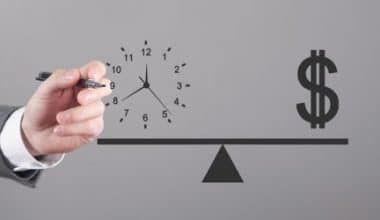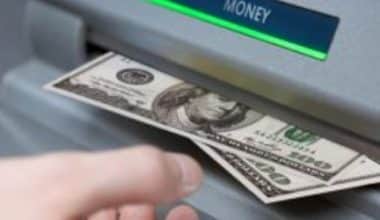A prefabricated home (also known as a mobile home) is produced in a factory and then transported to its permanent location. The process of purchasing a mobile home may be more complicated than that of purchasing a traditional home, but it may be a more inexpensive route to homeownership. In this article, you will learn all about a mobile home and the top loans you can take including a VA or FHA. We will also talk about mobile home park loans, in California and beyond.
What Is a Mobile Home Loan?
A mobile home loan is a loan for prefabricated dwellings that can be installed on land. Styles range from basic trailers to houses that are permanently attached to the land on which they sit.
Mobile home loans differ from regular property loans in that most lenders and counties regard them as personal property rather than real property. In fact, in many counties, rather than the property tax assessor, a mobile home is assessed by the Department of Motor Vehicles. If you wish to buy a mobile home and put it on leased land, your financing will most likely be more like a personal loan, with higher interest rates and shorter durations than a standard home mortgage.
There are a few exceptions, which we’ve mentioned in this list. Some mortgage companies will finance mobile homes if they are attached to the homeowner’s land. Others, and there are fewer of them, will lend on a mobile home even if it is situated on leased land.
Types Of Loans For Mobile Or Manufactured Homes
There are a few choices for financing a mobile or prefabricated house. Let’s look at each one and its advantages and disadvantages.
#1. Conventional Loans
Because mobile or manufactured homes are not considered real property, most lenders will not make you a conventional loan. Rocket Mortgage provides conventional loan financing for prefabricated homes that are permanently tied to the land and have been converted to real property. However, if you have a manufactured home that meets certain criteria, conventional mortgage lenders Freddie Mac and Fannie Mae do offer specialized loans.
#2. FHA Loans
The Federal Housing Administration (FHA) offers fixed-rate mobile home loans with fewer credit, debt-to-income ratio, and down payment criteria. These are popular among first-time buyers. Title I and Title II prefabricated house loans are also available.
FHA mobile home loans may be easier to qualify for if the home you’re considering fulfills the basic requirements. You will be able to obtain the loan without making a hefty down payment and may even save money on interest when compared to other financing choices. We presently do not provide FHA mobile home loans for prefabricated dwellings.
#3. VA Mobile Home Loans
You can also acquire VA mobile home loans if you wish to buy a manufactured house plus the land it sits on. Veterans and qualifying active duty service members can only get VA mobile home loans through the Department of Veterans Affairs. VA mobile home loans have numerous advantages, including the chance to put no money down and avoid paying mortgage insurance.
To qualify for VA mobile home loans, your home must be on a permanent foundation, fulfill HUD criteria, and be purchased with the land underneath it; mobile homes or manufactured homes that are not on permanent foundations do not qualify.
#4. Chattel Loans
A chattel loan can be used to purchase various types of property such as vehicles, yachts, and mobile homes. These loans often have shorter periods and smaller credit ceilings than standard mortgages, and they use the funded property as collateral for the loan, which might be dangerous. This implies that if you fall behind on your payments, your home may be confiscated to settle the debt. Rocket Mortgage does not provide chattel loans.
Nonetheless, they are a popular financing option for mobile, manufactured, and even modular homes.
#5. Personal Loans
If all else fails, you may be able to finance your prefabricated or mobile home with a personal loan. Personal loans may not have the same limits on how your home is constructed, so you may be able to apply even if your home is a fully movable mobile home that is not tied to a permanent base. Some lenders will provide customers a personal loan of up to $100,000, which may be more than enough to finance a manufactured house.
Top Mobile Home Loans in 2023
- AmeriSave: Best for overall affordability
- PenFed Credit Union: Best credit union for mortgages
- New American Funding: Best for low APR
- Wells Fargo: Best for convenience
- Guaranteed Rate: Best for digital closing
- Veterans United Home Loans: Best for VA loans
- Rocket Mortgage: Best for customer service
- Flagstar Bank: Best for fair credit
- Lower.com: Best for borrowers who prefer digital home lending
- SoFi: Best for online service
- Manufactured Nationwide: Best Overall
- ManufacturedHome.Loan: Best for Good Credit
- 21st Mortgage Corporation: Best for Bad Credit
- eLend: Best for Low Down Payment
- Vanderbilt Mortgage and Finance: Best for Manufacturer’s Financing
Pros and Cons of Buying a Manufactured Home
According to the most current Manufactured Housing Survey from the US Census Bureau, manufactured homes will account for around 9% of new single-family residential constructions in 2021. But, before you dive into any type of homeownership, weigh the benefits and drawbacks.
Pros
- Affordability: Despite a nationwide affordable housing problem, manufactured homes remain a more affordable option. In 2021, the average manufactured home cost $108,100, while a single-family home cost $365,904 (excluding the value of the land in both cases).
- Construction efficiency: Because prefabricated homes are created in factories, they are not affected by weather or other elements that affect site-built homes.
- Multiple financing options: There are numerous financing options available to assist you in financing a manufactured home. Many options allow you to finance both the land and the home, but you can also finance or refinance just the manufactured home.
- Reasonably safe: Safety fears about mobile home loans park are mostly unfounded—crime statistics in and around mobile home loans park are no different than in any other residential neighborhood.
Cons
- Higher interest rates: Typically, manufactured home loans have higher interest rates than other loan types.
- Higher chances of loan denial: Only around 30% of manufactured home loan applications are granted, compared to more than 70% of site-built home loan applications.
- Social stigma: Although manufactured housing has gone a long way in recent decades, not everyone has gotten the message. If you acquire a manufactured home, you may receive bad feedback from coworkers, relatives, or friends.
- Depreciating home value: Unlike traditional site-built homes, prefabricated homes may depreciate over time. However, depreciation is far from guaranteed; in fact, manufactured home values nearly kept pace with site-built home values between 2016 and 2021.
- Difficult resale: Manufactured houses are difficult to resell, and they can be extremely expensive if you wish to sell simply the home and maintain the land. Moving a mobile house to a new location will most likely cost thousands of dollars.
Are There Alternatives to Getting a Mobile Home Loan?
A standard mortgage is one of several alternatives for financing a manufactured home, including:
- Personal loan: A personal loan is available if your mobile home is categorized as a vehicle or personal property. Personal loans, on the other hand, may not give as much financing and have higher interest rates.
- Chattel mortgage: This is a moveable property loan. Chattel loans feature cheaper fees than standard loans, however, they cannot cover the cost of land.
- Installment agreement: An installment arrangement allows you to finance your mobile home straight from the dealer or seller. You will not have to deal with a bank, but you must still do your homework to ensure that you own the home outright.
- Cash purchase: If you have the money, you can buy the mobile home in cash and avoid incurring debt.
What Are Mobile Home Park Loans?
A mobile home park loans are debt that a borrower incurs to purchase a mobile home park and repay over time. A prefabricated home park requires a significant investment – depending on where it is located, a park with 80 lots can cost $800,000 or more. Most homebuyers don’t have that type of cash hanging around, so they’ll have to rely on financing.
Where to Find Loans for Mobile Home Parks
To discover the proper lender for your mobile home park loans, you’ll need to answer a few questions about your financial condition, the type of park you’re wanting to finance, and the best type of financing for you.
Consider the following points:
- Your personal and corporate credit scores – credit scores are the most important method lenders estimate your risk level. Better credit ratings can open the door to loan programs with better loan conditions, interest rates, and loan amounts. Nav can assist you in determining your credit ratings and may be able to assist you in improving them.
- Your down payment — How much money do you have to put down as a down payment? This can help you decide whether you want a typical bank loan or whether you want to investigate alternative financing choices that require less money down or a greater loan amount. Don’t forget about closing costs and other fees; you’ll need to cover those as well.
- Your risk tolerance – many MHCs or MHPs may appear to be ideal investment prospects simply because they require a lot of effort and you believe you have the time and ability to enhance them. But, like any other loan or investment, they can be risky whether they arrive in good or bad condition and regardless of how much time and money you’re willing to invest in them.
What is the Longest You Can Finance a Mobile Home?
The duration of mobile home financing is determined by the lender. However, loan terms can range from five to thirty years, depending on the loan type.
What Type of Loan is a Conventional Loan?
A conventional loan is any mortgage loan that is not insured or guaranteed by the government (for example, loans made via the Federal Housing Administration, the Department of Veterans Affairs, or the Department of Agriculture). Conforming and non-conforming conventional loans are available.
What Lenders Are the Easiest to Get Approved for?
Payday loans, automobile title loans, pawnshop loans, and personal loans with no credit check are the easiest loans to get accepted for. These loans provide speedy money and have few criteria, making them accessible to persons with bad credit. In most circumstances, they are also prohibitively expensive.
How Long Can You Keep a Mobile Home?
A HUD-compliant mobile home that is consistently maintained and repaired as needed will outlast a standard home by 30 to 50 years. Strict manufacturing rules are a big reason why mobile homes are now built and manufactured to endure decades.
What is the Maximum Period of a Home Loan that Can be Extended by a Bank in India?
The loan is repaid in equivalent monthly installments (EMI) over a maximum term of 30 years. This is only valid if you apply for the loan at a young age and the loan is paid off before you reach retirement age.
What is the Maximum Loan Amount?
A maximum loan amount is the total amount that a person is permitted to borrow on a credit line, credit card, personal loan, or mortgage. Lenders assess an applicant’s debt-to-income ratio, credit score, credit history, and financial profile when establishing the maximum loan amount.
What is the Difference Between a Mortgage and a Loan?
The term “loan” can refer to any financial transaction in which one party gets a flat payment and agrees to repay it.A mortgage is a sort of loan used to fund real estate. Mortgages are considered “secured” loans.
How Much of a Down Payment do you Need for a Conventional Loan?
Most lenders provide conventional loans with PMI for down payments ranging from 5% to 15%. Some lenders may provide conventional loans with a 3% down payment. Mobile home loans from the Federal Housing Administration (FHA). FHA mobile home loans are available with a 3.5 percent or greater down payment.
What is a Disadvantage of Owning a Mobile Home?
One disadvantage of purchasing a mobile home is that its value depreciates rapidly. A mobile home, like a new car, loses value fast after it leaves the factory. Stick-built homes, on the other hand, virtually invariably increase in value over time since the stick-built homeowner almost always owns the underlying property.
How Much Does a Mobile Home Cost in Texas?
In Texas, the typical cost of a site-built home is now listed at $260,000; in comparison, modular homes, mobile homes, and manufactured homes can be custom-built for anywhere from $55 to $75 per square foot, bringing the entire cost to around $117,000.
How Much Do Mobile Homes Cost in Florida?
The average cost of a used mobile home in Florida is roughly $47,853, but options can be much lower or more. The average size was approximately 1,100 feet (a typical double-wide).
Conclusion
Financing a mobile or prefabricated home can be challenging, especially if you wish to use a mortgage. Because many lenders do not consider manufactured or mobile homes to be real estate, there are numerous requirements and stipulations you must meet in order to qualify for a mortgage.
- BEST MOBILE HOME LOANS FOR BAD CREDIT IN 2023
- Best 2023 MOBILE HOME INSURANCE FLORIDA: Costs & All You Need
- The Top Best 2023 HOME INSURANCE FLORIDA, Updated!!!
- BEST PARK: All You Need to Know and Extra
- Best Manufactured Home Lenders in 2023
- HOW TO CONSOLIDATE CREDIT CARD DEBT: Complete Guide For Bad & Good Credit Without Hurting Credit






